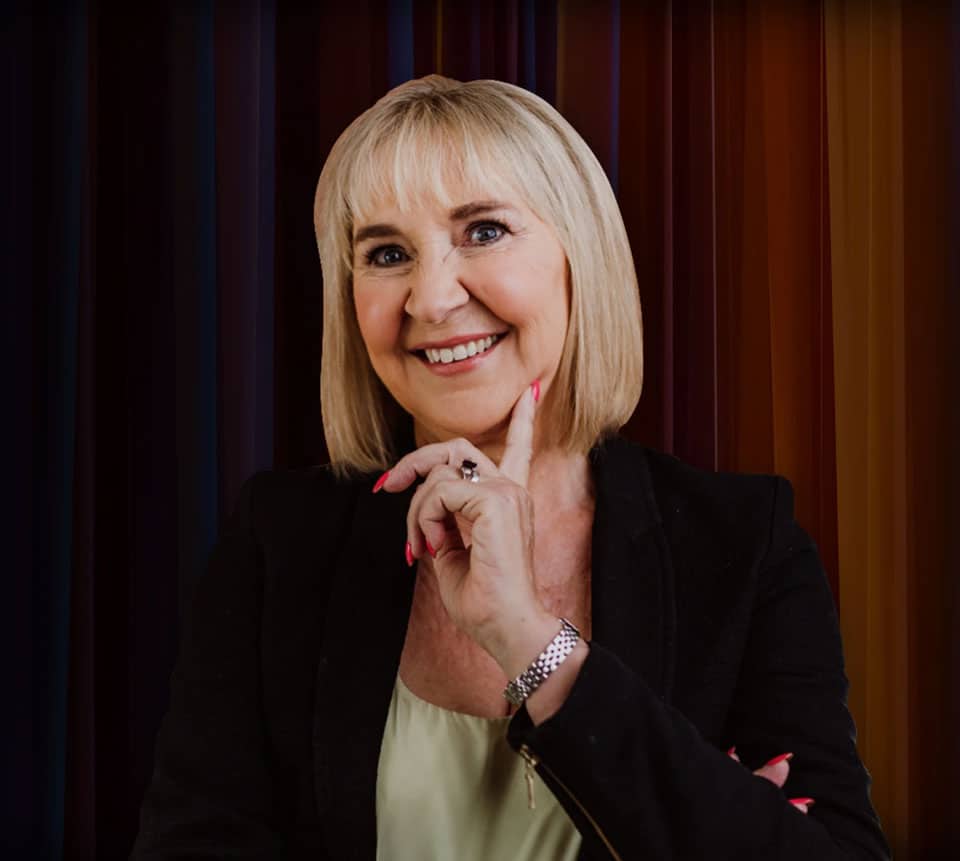Inherent bias and women in STEM

In his 2007 book Blink: The Power of Thinking Without Thinking, Malcolm Gladwell highlighted the issue of unconscious bias. The Oxford Dictionary defines unconscious bias as “unconscious favoritism towards or prejudice against people of a particular ethnicity, gender, or social group that influences one’s actions or perceptions– this can be positive or negative.” Dr Jenine Beekhuyzen believes that unconscious bias is hurting business, society, women, and girls.
Dr. Jenine Beekhuyzen OAM is a Thought Leader, Author, Speaker, Executive Producer, and Media Personality. Based on her 20+ years of research on the lack of women in STEM (science, technology, engineering & mathematics), Beekhuyzen founded the not-for-profit Tech Girls Movement Foundation. She has engaged 15,000+ schoolgirls hands-on in STEM entrepreneurship and chaperoning and, from 2015 to 2019, had 45 Techgirls pitch their apps to the world’s biggest tech companies in Silicon Valley. Jenine now creates a community through Research Central, her online community of practice helping doctoral students fast-track their research. Jenine has worked closely with Google, AWS, Accenture, Xero, eBay, and Salesforce.
Jenine believes that unconscious bias is keeping women out of STEM. She told me: – “I was working as a lecturer to IT students at university. There would be three hundred students in the class, of whom two would be girls. They came first, totally outclassed the boys, and then at the end of the year they would leave. It wasn’t ability or interest that got to them, it was the “bro culture”. Now most tech developers are white men between 18 and 35.” Beekhuyzen believes girls give up on STEM at the age of 5 or 6. They don’t have role models, they are given “pink” girl toys and are encouraged to play rather than to build. Boys build and develop spatial awareness – a great asset in tech workers.
But women bring other things – other ways of working and thinking. “We have about 20% of tech workers being women”, Jenine told me. “We need at least 30% women to create systemic change in the industry. ”
Why do we need women in STEM?
“Why I asked her do we need women in STEM?”
- The war on talent
Jenine told me: “We have a massive skill shortage in tech companies” – and now every company is a tech company.
Annabelle Gawer, director of the Centre of Digital Economy at the University of Surrey agrees. “The digital transformation has affected every company, blurring the line between tech and other sectors.” She says that with hiring “there is no such thing as the tech sector anymore.”
The pool for talent is restricted when women and girls turn away from STEM. - The Bro Culture
Even if women pursue a career in STEM – they often face so much unconscious bias they leave. - A scarcity of talent, a preponderance of white male thinking and the narrow focus that that brings, often lead to inherent bias in products, services and most disturbingly AI. Two examples of this inherent bias are:
a) Seat belts: – due to the inherent difference in male and female bodies, weight and size, the practice of using car crash test dummies (which are modelled on the average man) means that car and seat belt safety are generally modelled on men. Studies show that – due to this bias, women drivers are 47% more likely to be seriously injured in a car crash.
b) Automatic soap dispensers;- Automatic soap dispensers release soap when someone places their hands in front of the sensor. This design is to avoid physical contact with soap (and soap dispensers) to decrease the spread of germs. Unfortunately, not all soap dispensers can detect individuals with dark skin. By failing to detect dark skin tones (due to an inherent design fault based on unconscious bias) this technology is putting dark skinned people at greater risk of disease transmission.
- Opportunity cost to business
By restricting the pool of tech talent, business is also restricting the pool of innovative ideas – especially for markets other than straight white males. - Societal damage
In the documentary “Social Dilemma” the huge social cost of social media designed by younger white males, was revealed by tech industry veterans. The inherent bias in social media has led to a huge increase in self-harm (especially among teen and pre-teen girls) and child suicide.Jenine believes that there are huge opportunities available to those businesses that foster women in tech.
She reported that some of the early pioneers in tech were women.
These include Ada Lovelace who in the 1860s was the first computer programmer and Heddy Lamare – who in 1894 created spread spectrum, the basis for Wi-Fi.
Remedies
- Invest early – Australian billionaire Richard White pays university students (men and women) to study, so that he can capture the best and brightest and build a pipeline. Women on this program are receiving positive reinforcement for their tech skills and are more likely to stay in the field.
- Role models – when women and girls can see women in visible and leading positions in STEM, they are more likely to visualize themselves in STEM. For example, women who regularly tuned into “The X-Files”, where Dana Scully (a powerful women with tech skills) was the lead character, were 50% more likely to work in STEM. Interestingly, parents and grandparents who watched the X files were also more likely to encourage their female offspring to study and work in STEM.
- Be proactive – go out and look for talented women. In my article on Rachel Debeck, a successful CEO, we learnt that she was recruited as the result of search where the founders of Flexischools, a highly successful tech company, specifically searched for a woman because of the diverse skills that woman bring and because the majority of the company’s clients are women. The founders (all men) wanted a CEO who deeply understood their market.
Jenine’s plea to global business leaders
“Support diversity in STEM and promote the results that come from diversity of thinking and creating collaborative environments for problem solving in your organization. Work with the Tech Girls Movement and the Future Fixers organizations already creating change and challenging the status quo.” In this way leaders can make a difference, relieve staff shortages, and better meet the needs of a diverse marketplace, thus leading to greater business success.
Written by Margot Cairnes.
Have you read?
Ranking the 50 greatest revenge movies of all time.
Ranked: The World’s Most Powerful Countries For 2023.
Ranked: Countries with the highest share of women in parliament.
The World’s Largest Gold-Producing Countries, 2023.
Ranked: The World’s Most Influential Countries, 2023.
Ranked: World’s Most Forward-Thinking Countries, 2023.
Add CEOWORLD magazine to your Google News feed.
Follow CEOWORLD magazine headlines on: Google News, LinkedIn, Twitter, and Facebook.
This report/news/ranking/statistics has been prepared only for general guidance on matters of interest and does not constitute professional advice. You should not act upon the information contained in this publication without obtaining specific professional advice. No representation or warranty (express or implied) is given as to the accuracy or completeness of the information contained in this publication, and, to the extent permitted by law, CEOWORLD magazine does not accept or assume any liability, responsibility or duty of care for any consequences of you or anyone else acting, or refraining to act, in reliance on the information contained in this publication or for any decision based on it.
Copyright 2024 The CEOWORLD magazine. All rights reserved. This material (and any extract from it) must not be copied, redistributed or placed on any website, without CEOWORLD magazine' prior written consent. For media queries, please contact: info@ceoworld.biz
SUBSCRIBE NEWSLETTER








